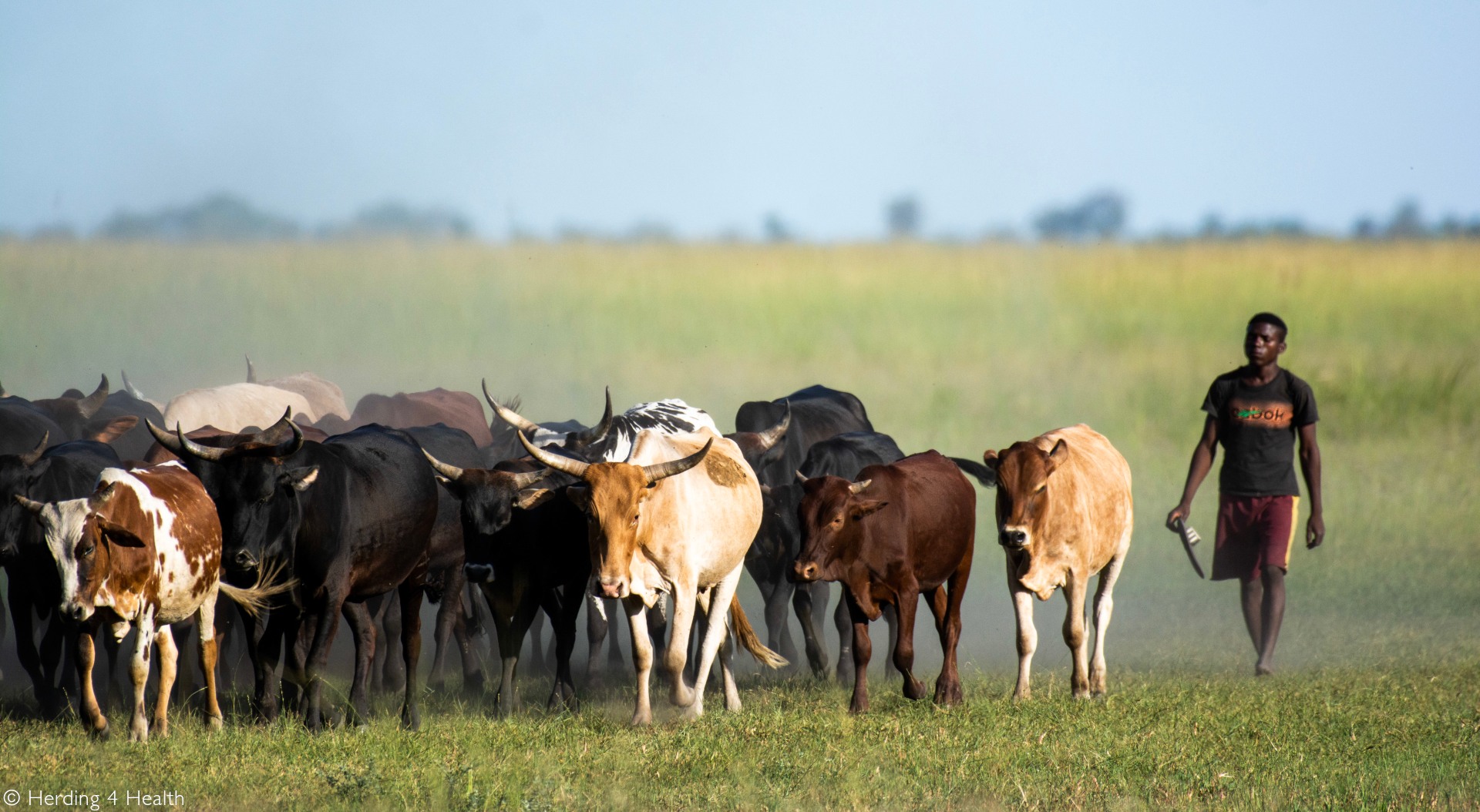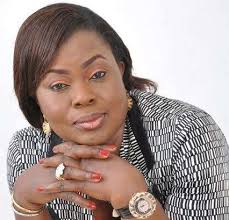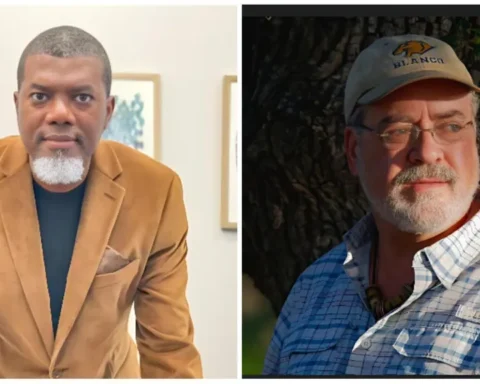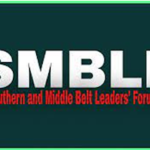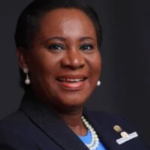By Charles Obiajulu Ugwu- PhD
There is a strange choreography that defines political movement in Nigeria, something ancient, animalistic, and eerily instinctive. Herds of cattle move with purpose. Buffaloes follow the pulse of survival. Lions in a pride march with primal logic: the hunt, the hunger, the heat. Their movement may be guided by scent, by intuition, or by the unspoken rhythm of the earth beneath their paws. They move because movement itself sustains life.
But man, supposedly the rational animal, was meant to move by reason, not instinct. To belong to a community of thinkers, not just followers. To choose not because others choose, but because choice is a function of thought. And yet, in Nigeria, one watches the daily parade of political herding with the same disbelief one reserves for a man who mistakes the noise of a marketplace for the voice of God.
Every election season, politicians migrate like nomads, dragging their followers across ideological deserts. Governors switch parties as easily as a man changes clothes. Senators defect and re-defect depending on where the wind of power blows. Those below them; their aides, local chairmen, and hangers-on follow without pause, without question, without irony. The spectacle would be comic if it weren’t tragic.
A governor crosses from Party A to Party B, and overnight, an entire ecosystem of loyalists follows. From the House of Assembly down to the ward Councilor, allegiance evaporates and reforms, like dew on a hot morning. Party colors change, slogans shift, but the faces remain. No one asks why. No one asks what changed. No one even pretends to remember what yesterday’s convictions were. In this political marketplace, ideology is as disposable as the party flag itself.
What drives this? Not conviction. Not philosophy. But herding pure and unadulterated. The herd moves where the grass seems greener, even if it is only painted.
To understand this madness, one must revisit the soul of democracy itself. Democracy, in its most sacred conception, is not merely about electing leaders. It is a system built on the assumption of rational, conscious individuals making choices based on ideas, values, and competing visions of the good life. Its vitality depends on a shared belief in something larger than tribe or transaction. Without that philosophical spine, democracy becomes a ritual without meaning a body without a heartbeat.
Nigeria’s democracy has become precisely that: a system of rituals without soul. We have mastered the choreography of elections but not the conscience of governance.
The original architects of representative democracy imagined a society of citizens bound by civic identity, not tribal loyalty. They envisioned politics as a battle of ideas, not appetites. But in Nigeria, politics has mutated into a contest of stomachs, not ideologies. We do not elect thinkers; we enthrone benefactors. We do not debate policy; we distribute patronage. We do not build parties; we build networks of survival.
Political parties, by definition, should embody distinct ideological positions—a compass of beliefs that guide how they interpret justice, governance, economy, and the human condition. In Britain, the Conservatives and Labour evolved from deep moral and economic disagreements. In America, Democrats and Republicans diverged around philosophies of individual freedom and social welfare. These were not mere labels; they were moral coordinates.
But in Nigeria, parties are shelters for ambitions, not ideas. The names change, the acronyms shift, but the substance remains identical: a hustle for access to the national feeding trough. Party manifestoes are written like grocery lists of wishful thinking. There is no intellectual or moral differentiation between one and the other only varying degrees of arrogance and efficiency in the art of appropriation.
Consider the history. From the First Republic to today’s Fourth, political parties have rarely been born out of ideological necessity. The NCNC, NPC, and Action Group of the 1950s were thinly veiled ethnic coalitions wrapped in nationalist rhetoric. Their successors the NPN, UPN, and NPP of the Second Republic, carried the same DNA, only in modern suits. And the Fourth Republic has perfected the tradition. PDP, APC, APGA all more alphabet soups of convenience. When power shifts, they swap letters but retain the same syntax of greed.
When a governor defects, it’s not because his convictions evolved rather it is because his calculations did. The herd follows because, for them, loyalty is not to an ideal but to the distribution pipeline. The closer you are to power, the warmer your hands.
And so, our democracy drifts directionless, soulless, endlessly performative. It has become a moving herd without a shepherd of sense.
There is a profound irony in this. Democracy was meant to liberate people from feudal obedience. Yet, in Nigeria, democracy has become feudalism in civilian clothing. The people still bow not to monarchs, but to elected kings. We no longer call them “His Royal Highness”; we call them “His Excellency.” The function is the same: absolute power, little accountability, and the intoxicating toga of unearned reverence.
When democracy loses ideology, it reverts to instinct. And instinct especially in a wounded, unequal society inevitably drifts toward survivalism. That is why Nigerian politics feels more like hunting than governance. It’s the jungle, not the parliament. Every election season, alliances form like packs chasing prey. Once the spoils are secured, they turn on one another.
You see it in the language. A man loses an election and immediately declares that “politics is not war.” Yet, when he wins, he becomes the warlord of power. Democracy becomes a blood sport dressed as civic duty. The people become spectators, cheering their favorite hunters.
In this theater, ideology becomes a liability. To have convictions is to be naive. To hold principles is to risk isolation. Pragmatism, that seductive cousin of cowardice, becomes the most celebrated virtue. “Politics is about interest,” they say, as if that excuses moral bankruptcy. “Politics is local,” they insist, as if local means lawless.
But this herding is not just among the politicians. The citizens, too, are complicit. Nigerians have become conditioned to follow, not question. Every defection by a leader triggers a mass migration of followers, like shadows obeying a moving body. The masses move not because they understand, but because they fear being left behind in the sharing of crumbs.
It is this civic paralysis of the refusal to think that has made the country a playground for charlatans. When thought dies, tyranny thrives.
Take the case of a State where a governor once switched parties mid-term. Overnight, local chairmen, legislators, commissioners, and even market women changed allegiance. Party offices repainted. Flags replaced. Chants altered. The opposition vanished in a single week. When asked why they followed, one lawmaker answered with honesty that is both comic and tragical: “You cannot oppose your oga and still expect to eat.”
There lies the secret creed of our democracy: obedience as strategy.
Democracy, in its Nigerian edition, is a managed herd, not a participatory process. It rewards loyalty, not legitimacy. It survives not because it works, but because everyone has found a way to make it work for them.
The tragedy is that the system is too familiar to feel absurd anymore. The absurd has become the normal, the immoral has become the operational. The people no longer expect ideology rather they expect distribution. Leadership is not judged by integrity but by generosity. “At least he shares” has become a moral benchmark.
The poor are bribed with food. The educated are bribed with access. The clergy are bribed with relevance. The journalists are bribed with advertisement. The system feeds everyone just enough to keep them quiet. It is not governance; it is sophisticated herding.
And because the herd survives, it rarely questions the direction of its motion. A nation becomes a moving mass without movement.
Yet, every democracy lives or dies on the consciousness of its citizens. The Nigerian voter’s tragedy is not ignorance but despair. They no longer believe that change is possible. The ballot has become a placebo swallowed every four years to dull the pain of living in a country that feels permanently on the verge of becoming.
This despair manifests in subtle ways: voter apathy, cynical humor, moral relativism. We laugh about corruption as if it were folklore. We romanticize our suffering. We have built resilience into religion and fatalism into culture. The system thrives on our endurance.
But endurance is not virtue when it becomes submission.
A functioning democracy requires belief in the collective capacity to shape destiny. Ours is a democracy without believers. Everyone participates, but no one believes.
To heal this, ideology must return not as imported dogma, but as indigenous philosophy. Africa’s ancient political systems were not perfect, but they were rooted in communal ethics: accountability to elders, stewardship of land, consensus in decision-making. These were ideological anchors, not improvisations. Democracy can be reborn here only when it grows from those roots, when participation is tied to principle, and power to purpose.
But this rebirth demands courage, the courage to think, to dissent, to question even the sacred cows of tribe and religion. It demands a citizenry that no longer mistakes followership for loyalty. It demands political parties that are more than logistics companies for elections.
Until then, we remain a nation of herds brilliant, vibrant, yet trapped in the orbit of obedience. Our tragedy is not lack of intelligence but the absence of ideological imagination.
Every country eventually becomes the sum of what its people believe about themselves. What does Nigeria believe about itself? A land destined for greatness, or a marketplace for greed? A democracy in evolution, or a herd in motion?
Perhaps the time has come to confront the uncomfortable questions our history keeps avoiding.
Were we ever truly ripe for self-governance, or did we mistake independence for capacity?
Is democracy, as designed and practiced, truly compatible with the complex realities of our societies?
Can a system built on the assumption of rational citizenship thrive in a polity still bound by tribal reflex and economic dependency?
Until we confront these, our democracy will remain a parade of herds marching toward no horizon—loud, colorful, and utterly lost.
And the saddest part? The herd will keep moving, even when it no longer remembers why.
About the Author
Dr. Charles Obiajulu Ugwu writes from Lagos
Follow us on all social media platforms @dailyquery for news and analyses around the globe.
